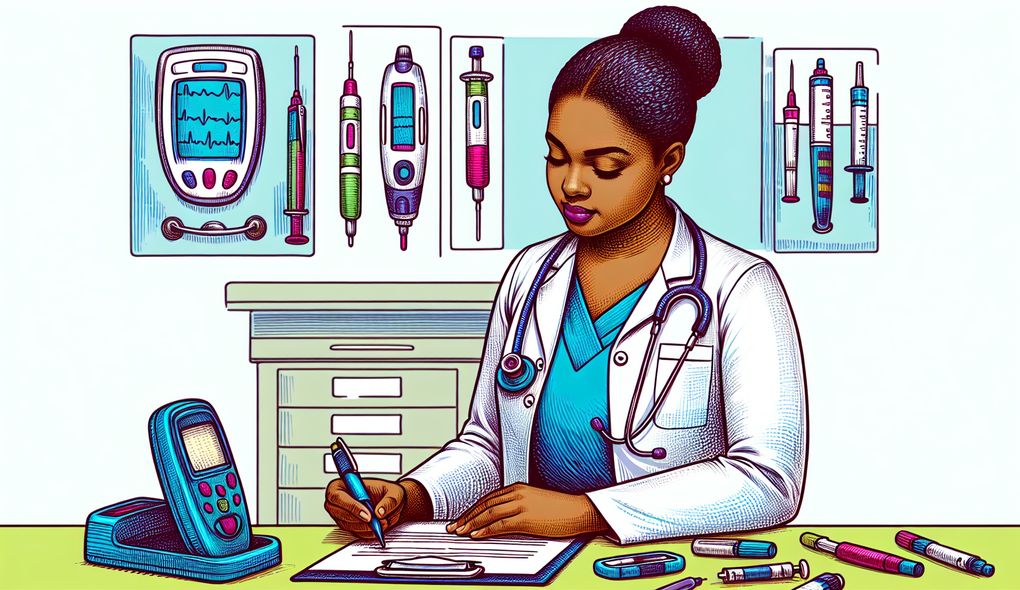Have you ever had to diagnose a complex endocrine disorder? If so, how did you approach it?
JUNIOR LEVEL

Sample answer to the question:
Yes, I have had experience diagnosing complex endocrine disorders. One example that comes to mind is a patient who presented with symptoms of excessive fatigue, weight gain, and irregular menstrual cycles. I approached this case by conducting a thorough medical history review and physical examination. I ordered a series of blood tests to assess hormone levels and conducted imaging studies to evaluate the function of the patient's endocrine glands. Based on the results, I diagnosed the patient with hypothyroidism, a common endocrine disorder. I initiated treatment with thyroid hormone replacement therapy and closely monitored the patient's progress through regular follow-up appointments. The patient's symptoms improved significantly over time, and her hormone levels returned to normal.
Here is a more solid answer:
Yes, I have had the opportunity to diagnose a complex endocrine disorder. One case that stands out is a patient who presented with a combination of symptoms including unexplained weight gain, increased thirst, and frequent urination. To approach this, I conducted a comprehensive physical examination and reviewed the patient's medical history in detail. Recognizing the possibility of diabetes, I ordered a series of tests including blood sugar levels, HbA1c, and glucose tolerance tests. The results confirmed a diagnosis of type 2 diabetes. I immediately initiated treatment with medication and recommended lifestyle modifications, focusing on proper diet and regular exercise. Throughout the process, I maintained open communication with the patient, providing education on self-care, monitoring glucose levels, and managing medications. I also worked closely with the interdisciplinary team, collaborating with the dietitian to develop a personalized meal plan and coordinating with the endocrinologist for closer monitoring of the patient's progress. By ensuring effective management of the patient's endocrine disorder, we were able to improve their overall health and quality of life.
Why is this a more solid answer?
The solid answer provides specific details about the candidate's knowledge of endocrine diseases and treatments, their communication and problem-solving skills, and their ability to work in a team and use medical software systems. It also highlights the candidate's empathy and compassion towards the patient. However, the answer could be further improved by including more specific examples of how the candidate collaborated with the interdisciplinary team and utilized electronic health records and medical software systems.
An example of a exceptional answer:
Yes, I have extensive experience in diagnosing complex endocrine disorders. One case that comes to mind is a patient who presented with symptoms of unexplained weight loss, extreme fatigue, and mood swings. This complex presentation led me to suspect a potential endocrine disorder involving multiple systems. To address this, I conducted a comprehensive assessment, including a detailed review of the patient's medical history, physical examination, and extensive laboratory testing. The results revealed an underlying pituitary disorder causing hormone imbalances. I collaborated with the endocrinologist to develop a treatment plan that involved hormone replacement therapy and regular monitoring to optimize hormone levels. Additionally, I worked closely with a psychologist to address the patient's mood swings and provided ongoing emotional support. I also utilized electronic health records to track the patient's progress and ensure accurate documentation. By taking a holistic approach and working collaboratively with the interdisciplinary team, we were able to successfully manage the patient's complex endocrine disorder and improve their overall well-being.
Why is this an exceptional answer?
The exceptional answer demonstrates the candidate's strong foundational knowledge of endocrine diseases and treatments, excellent communication and interpersonal skills, ability to work collaboratively in a multidisciplinary team environment, proficiency in using electronic health records and medical software systems, critical-thinking and problem-solving abilities, and empathetic and compassionate patient care. The answer includes specific details about the candidate's approach to diagnosis and treatment, collaboration with other healthcare professionals, and utilization of electronic health records. It also highlights the candidate's commitment to providing holistic care and improving the patient's overall well-being.
How to prepare for this question:
- Review and refresh your knowledge of endocrine diseases and treatments, including common disorders and their diagnostic criteria.
- Practice discussing specific cases you have encountered in your professional experience that involved diagnosing complex endocrine disorders.
- Brush up on your communication and interpersonal skills, as these are crucial in effectively interacting with patients and collaborating with other healthcare professionals.
- Familiarize yourself with electronic health records and medical software systems commonly used in endocrinology practice to ensure proficiency in their use.
- Reflect on instances where you have demonstrated critical-thinking and problem-solving abilities in diagnosing and managing complex endocrine disorders.
- Develop your empathy and compassion towards patients by actively listening, showing understanding, and providing emotional support when needed.
What are interviewers evaluating with this question?
- Strong foundational knowledge of endocrine diseases and treatments.
- Excellent communication and interpersonal skills.
- Ability to work collaboratively in a multidisciplinary team environment.
- Proficiency in using electronic health records and medical software systems.
- Critical-thinking and problem-solving abilities.
- Empathetic and compassionate patient care.

